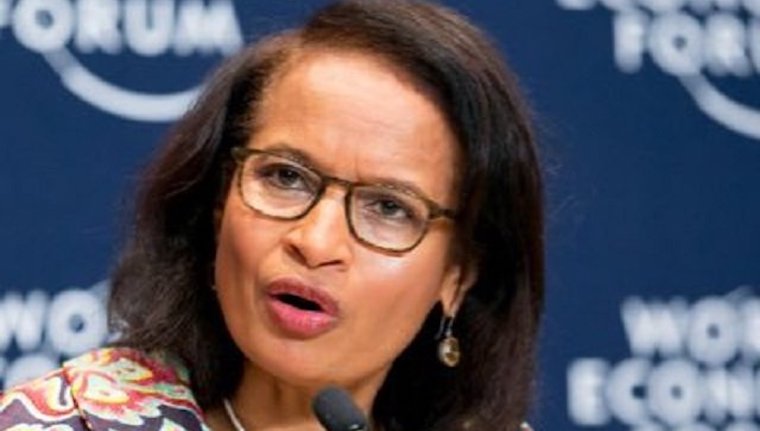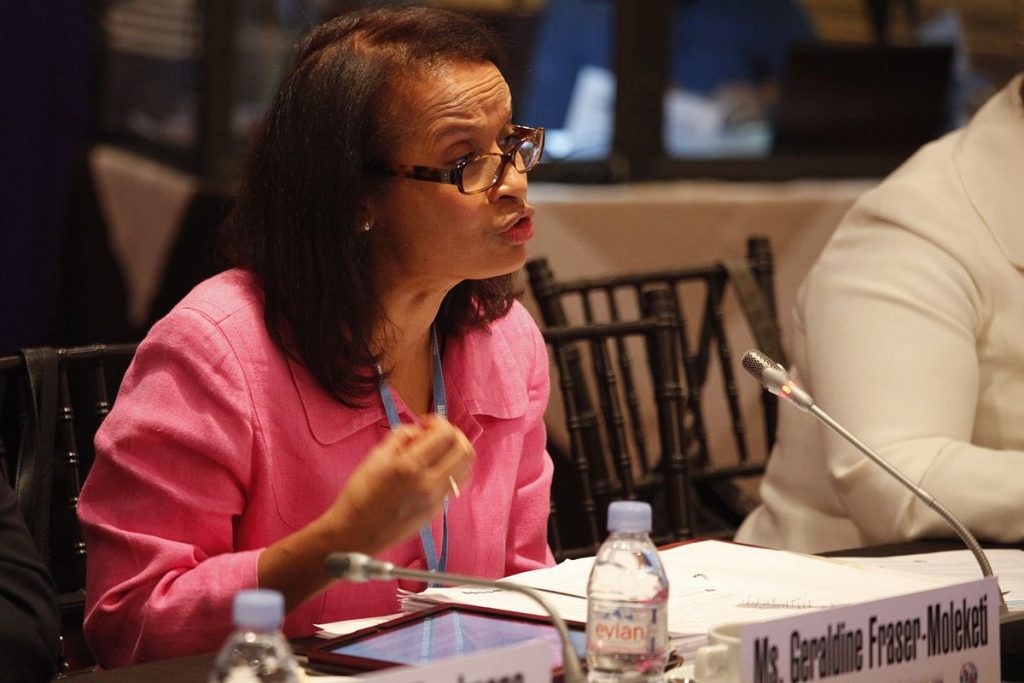South African powerhouse Geraldine Fraser-Moleketi was born in 1960 in Lansdowne, Cape Town. After finishing her high-school education to pursue a Diploma at the University of the Western Cape (UWC), she followed in the footsteps of her grandmother, who was a unionist. Her first jaunt in activism was as part of the Bellville Association for Community Action, a civil organisation that fought to resolve the political issues facing the Bellville Community.

Fighting for civil rights
Fraser-Moleketi had to go into exile in 1980 due to South Africa’s political situation. During her exile, she joined the African National Congress (ANC) and was drawn into its military structures under the military wing uMkhonto we Sizwe, which means ‘Spear of the Nation’. This was the armed wing of the ANC, co-founded by Nelson Mandela in the wake of the Sharpeville massacre to fight against the South African government. She received military training in Angola, the Soviet Union and Cuba, alongside her husband, Jabulani Moleketi. Also during her exile she became a member of the South African Communist Party (SACP), serving in the regional leadership of the party based in Zimbabwe.
Supported by the SACP, she returned to South Africa in 1990, during the initial talks between the ANC and the National Party government to prepare for the relaunch of the party after it had been unbanned. Alongside political icon Nelson Mandela, Fraser-Moleketi served in SA’s first democratic Parliament and in Mandela’s Cabinet. She joined the government as the appointed Deputy Minister for Welfare and Population Development, graduating to Minister of the same department a year later, in 1996. She moved on to become Minister of Public Service and Administration in 1999 until 2008.
Fighting for gender equality
In 2017 she was awarded an honorary doctorate by Nelson Mandela University for her contribution to leadership in social and economic transformation, with specific emphasis on the empowerment of women.
This stems from her work as the director of the United Nations Development Programme’s Democratic Governance Group, responsible for overseeing the organisation’s strategic and policy work in 197 countries and territories and as Special Envoy on Gender for the African Development Bank. In her time at the bank, she has authored posts that tackled issues with such titles as “Gender equality: An imperative for inclusive growth”, “Violence against women and girls is a global issue. It’s also an African issue”, “Investing in women means investing in Africa’s future” and “Ebola: The need for a gendered approach”.
In 2016 she received the London-based New African Magazine Woman of the Year award.
Fighting for access to success
Fraser-Moleketi now serves on a number of boards across academia, the government and development organisations. When Fraser-Moleketi became the chancellor at Nelson Mandela University, she pledged to grow engagement and help the youth take up their position in determining Africa’s destiny, thus supporting the aspirations of a decolonised, Africanised society and higher-education environment.
“A university carrying Nelson Mandela’s name should set the tone for African leadership, for equality, gender equality and social cohesion.” – Geraldine Fraser-Moleketi
At the time of her appointment, she was quoted by Business Daily Africa, saying, “In addition to academic prowess, a university carrying Nelson Mandela’s name should set the tone for African leadership, for equality, gender equality and social cohesion. This includes coming up with practical ways to confront our past while building a better future. The former vice-chancellor, Prof Derrick Swartz, and former chancellors, including my predecessor, Santie Botha [and] the late Chief Justice Pius Langa, have all emphasised the requirement of the university to produce socially conscious graduates who will champion justice and equality, be change agents and entrepreneurs who help to build a better society and world.
“This is all part of decolonisation, and Nelson Mandela University’s faculty of law, for example, is addressing this in its decolonisation of legal education and the law.”

